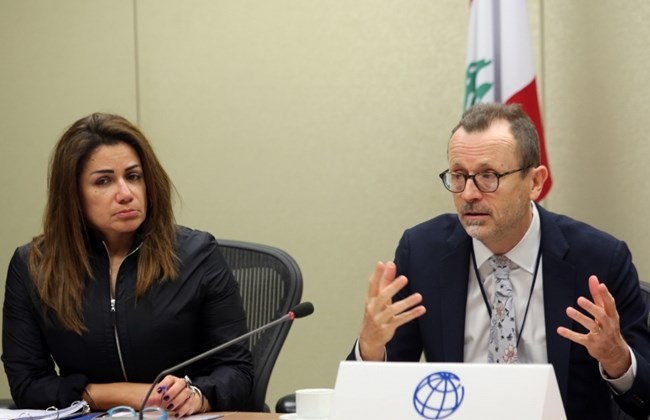World Bank urges strategy to support job creation

BEIRUT: Lebanon needs to adopt an integrated strategy to support job creation and fight unemployment among the youth, a delegation of the World Bank group said Friday.
The delegation is on an unofficial visit to Beirut to assess the dynamics of Lebanon’s labor market and devise in cooperation with the Lebanese government a suitable long-term action plan.
“The response plan should correspond with the scale of the problem,” said Nigel Twose, senior director of the World Bank’s Jobs Cross-Cutting Group.
Twose made his remarks during roundtable discussions at the World Bank offices in Beirut, before leaving to meet with representatives of labor unions, one of several stakeholders that the World Bank delegation was consulting as part of its fact-finding mission in Lebanon.
In a 2013 assessment of the impact of the Syrian crisis on Lebanon, the World Bank projected Lebanon’s unemployment rate to reach 20 percent by the end of 2014.
The study also forecast 23,000 individuals to enter the labor market on average annually over the next 10 years, which requires the Lebanese economy to create more than six times the 3,400 jobs it currently creates each year.
Assuming that the government responds positively to the World Bank’s endeavor and puts a comprehensive strategy to support job creation into action, it would still take years for its impact to materialize, economists say.
Some economists take it further and say previous instances of cooperation with the government haven’t proved useful. Following a three-year technical cooperation program with the Lebanese government, the World Bank issued in 2012 a set of policy recommendations to support employment creation in Lebanon.
However, the bulk of these recommendations, which were prepared at the time under the guidance of a multi?ministerial steering committee, haven’t come to fruition.
Worse yet, labor market conditions have since deteriorated, said Twose, arguing that Lebanon needs to rethink training and active labor market programs to upgrade the skills of the labor force and facilitate labor market transitions.
The need to revise training and active labor market programs to lower unemployment rates that reach as high as 34 percent among the youth and 18 percent among women was one of the many policy recommendations that featured in the 2012 World Bank report entitled “Miles.”
Referring to the role of macro, investment, education, labor and social protection policies in supporting employment creation in Lebanon, the report recommended a multilayered approach to address weaknesses in the country’s labor market.
The report said Lebanon would need to consolidate fiscal policy to remove distortions that affect investment decisions, increase the efficiency of public investment and improve the business environment to increase job creation rates in high productivity sectors.
Lebanon also needs to reform its social security system to reduce the share of informal employment and encourage labor mobility, it added.




